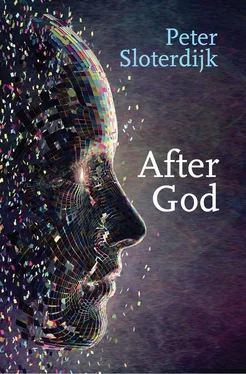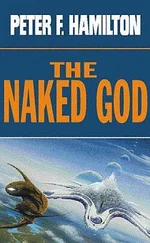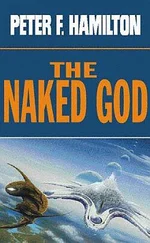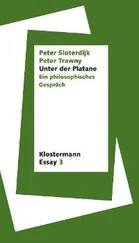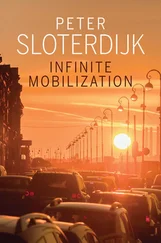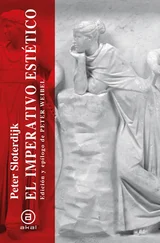In his final years Luther seemed tacitly to come closer to Calvin’s positions. In his Institutio of 1536, Calvin completely rejected the idea of purgatory as a fiction concocted from “heresies.” He thus restored the implacability of the initial either–or – which inevitably made him the honorary chairman in the world congress of hypocrisy, as the harsh either–or could be borne only with help from the self-hypnotizing fiction of belonging to the flock of the saved (keyword: “Innerworldly askesis”).
It has been occasionally remarked that the annulment of monastic life in Luther’s work removed the East from the western culture of religion. It would be more appropriate to say that his reductionism stripped religious virtuosity of its foundations. The loosening of eccentric tension contributed to the routinization of religio . Minimizing the cult led to the internalization of the interaction with the Highest. Internalization led to privatization; and privatization led to an assimilation under profane worldliness. The rest is pedagogical Christendom. The entire process was accompanied by the inevitable generalization of hypocrisy. For the model of a human existence oriented toward the command to do penance could not be sustained for long.
Luther anticipated the problem of a Protestant hypocrisy and attempted to temper it with the formula simul iustus et peccator [righteous and sinner at once]. His precaution turned nothing from the direction of development. It was inevitable that the condensation of existence into a single point should fail, because eccentric positionality cannot be eliminated, not even after reduction. Who would be capable of distinguishing the justified sinner from the hypocrite relocated to eternity? The penitential imperative lost its plausibility to such an extent that the expectation of the imminent Last Judgment petered out. In Luther, belief in the approaching judgment was still paired with a rock-solid certainty; it was surpassed only by his conviction about the omnipresence of the devil.
*
When we take stock of the Reformation, the first thing we are compelled to notice is that Luther’s impulses were essentially restorative much more than revolutionary. His interventions in the papal church followed the schema of a conservative revolution where innovation presents itself as restoration. Luther preached a Christian salafism, as it were. He never lost the conviction that his reading of the holy text was more catholic than every Catholicism and more evangelical than all scholastic theology; and this all the more as the conceited theologians had given undue pride of place to the master thinker of the pagans, Aristotle. Luther’s slogan could have been: Rise up, you Christians, onward into the past!
Luther belongs among the rare figures of cultural evolution of which we can say that they were lucky in terms of the history of ideas. In this field, being favored by luck means finding successors who are better than one deserves. In the case of Martin Luther, his unmerited successors include – and I will content myself with the shortest of lists – Gottfried Wilhelm Leibniz, Johann Sebastian Bach, Gotthold Ephraim Lessing, Immanuel Kant, Johann Gottlieb Fichte, Georg Wilhelm Friedrich Hegel, Friedrich Nietzsche, Albert Schweitzer, Gotthard Günther, and Martin Luther King: here Luther’s universe resonates like a world history in first names.
When we do history of ideas, we devote ourselves to the attempt to do justice to the asymmetries of what was said “earlier” and what was said “later.” Cultural evolution runs its course in a manner that is asymmetrical per se. This can be gleaned from the fact that we would find it absurd if someone said that Luther announced his theses before the appearance of Hegel’s Phenomenology of Spirit . By contrast, it makes sense to observe that, when Hegel formulated his vision of the idea as it makes its way through history, he did so from a position that came after Luther in history.
Luther’s historical effects can be described as a regression with progressive consequences. His unanticipatable and undesired progressivity is bound up with the interplay between his retrogressive tendencies and the proleptic political and media constellations of his time. From a politological perspective, Protestantism was the front desk of a squabble that took place among theologians on the terrain of princes – and within the space of provincial universities. It was the German imperial princes who took a conflict about questions of religio and turned it into a vector of world history. The princes (and their learned tutors at universities) were the ones who developed Luther’s offensive potential by discovering how useful it would be for them and their political practice to take on the premodern, state-forming element of confession. In confessions, parties cast their shadows in advance. Seemingly marginal questions, such as whether God is present or merely remembered in the Eucharist, become a scandal of epochal significance. Europe assumed a prominent place in the history of surrealism when it began to sacrifice countless lives for invisible differences.
In order to speak further about a Lutheran difference, one must investigate whether it can still be connected with the basic moods of contemporary feelings about the world and life. The answer can be given almost without qualification: no. Luther was lucky in point of history of ideas and psychohistory; for, in and of itself, his overwhelmingly dark legacy was dubious in terms of the psychology of religion, theologically unoriginal, and philosophically regressive. It was also reshaped by ever new levels of the Enlightenment, of civilization, and of cheerfulness. Luther could not prevent a theological frenzy from becoming a sort of evening song. Here the forest had learned to fall silent in a dark, unmistakably German way, while the fog ascended from the meadows as whitely as the moonlight would allow and as wondrously as world-weary souls believed was merited. Luther was lucky to have new virtuosi appear after him. These, however, were not virtuosi of religio but rather grand masters of thought, language, and affirmation.
We will not sufficiently understand the history of the world, of ideas, and of the production of cheerfulness if we do not realize to what extent Luther, who preferred to invoke biblical allies, became a favorite of pagan Fortuna. The new theologians felt that they were guided by the Holy Spirit. But from this point on the Holy Spirit entered the stage wearing the mask of the goddess of luck. Success – and success equals causality plus luck – ensues only as a result of Fortuna cooperating cum spiritu sancto , with the Holy Spirit. Luther had such luck with Erasmus, in whom he found a contemporary opponent who knew how to articulate the universally legitimate concerns of the Reformation without making an uncivilized racket. He was lucky when, more than a century later, a Jewish dissident named Baruch de Spinoza called for the evacuation of the sad passions from the rational soul and broke with the traditions of clerical world denial. He was lucky when Johann Sebastian Bach brought jubilation back into the bleak churches with his “Jauchzet, frohlocket!” [“Exult, rejoice!”]. He was lucky, seeing that Leibniz, as an advocate of God, minimized the share of irrationality in creation. He was lucky when, in the monumental collection Irdisches Vergnügen in Gott [ An Earthly Pleasure in God ], Brockes taught that we should joyfully perceive the presence of the Highest even in the least of things. He was lucky, given that, as a cultural, climatic whole, the German classicism of Klopstock, Lessing, and Herder up until Fichte, Hegel, and Schelling – to say nothing of the Olympians in Weimer – was able to present a more cheerful transposition of the Wittenbergian missive to the world, three hundred years post eventum ; the transposition was bound in cloth, with gilt edging and tail bands.
Читать дальше
